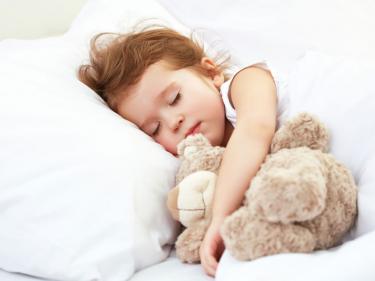Bedwetting and Child Sleep
.jpg) Marin Mommies presents a guest article by Marin parent coach, infant/toddler sleep researcher, and family therapist Angelique Millette.
Marin Mommies presents a guest article by Marin parent coach, infant/toddler sleep researcher, and family therapist Angelique Millette.
Nocturnal enuresis is the medical term for bedwetting, and is common in children. About 15 percent of five-year-olds are wet at night, and by age 12, only three percent of kids still wet the bed (mostly boys). Even so, bedwetting can be very embarrassing for kids, and parents may feel conflicted about how best to proceed. This article will focus on bedwetting as it occurs as a normal part of increasing independence and mastery in children, types of bedwetting, and how best to help your young one to succeed with nighttime bladder mastery. There are two types of nocturnal enuresis, with different kinds of causes:
- Primary nocturnal enuresis- child has never had nighttime control, and have always wet at least two times a month. Most children who wet the bed have primary enuresis. It is not caused by psychiatric or emotional problems. Causes for primary enuresis include differences in bladder muscles, making too much urine, small bladder, and sleeping too deeply to wake up when the bladder is full, with the most common cause an immaturity of the part of the brain that signals a full bladder and awakens a child.
- Secondary nocturnal enuresis- much less common and diagnosed when the child was completely dry at night for at least 6 months and then started wetting again. With secondary enuresis, the key is finding out what has changed in the child's life. Secondary enuresis is typically caused by stress such as a new baby sibling, a divorce, a move, or a family death. Secondary enuresis can also be caused by genetics, a urinary tract infection (UTI), and even constipation
A visit to your child's doctor can help you diagnose the reason(s) for secondary enuresis.
Suggestions for eliminating bedwetting
- Be patient and understanding with your child. Remind your child that it is part of growing up, and remember not to punish your child for bedwetting. One study found that three-fourths of parents punished their children for bedwetting, and can lead to prolonged bedwetting, and/or secondary problems.
- Respect your child’s privacy, and do not discuss your child’s bedwetting in front of others.
- Ask your child to change their soiled pajamas, and bedding on their own. Remember not to have them do it as punishment, rather in a “taking responsibility for their actions” sort of way.
- Use a zip-up plastic mattress cover. Quick clean up and less stress too!
- Start daytime and nighttime potty training during a relatively peaceful period of time, typically not at the same time that your child is starting a new school program, or before or during a trip. Keep potty training “low stress.”
- Encourage your child to drink a lot of water and early in the day.
- Use a reward system, such as a sticker chart on the bedroom wall for dry nights. Put the focus on being dry, to keep the tone positive. After a week of dry nights, treat your child to a special outing such as the zoo, or an arts-and-crafts store.
- Remind your child to go to the bathroom to empty their bladder right before bedtime. Turn on the faucet if your child is having trouble going to the bathroom, as the sound of water will typically encourage a child to urinate.
- Be sure to eliminate caffeine and allergy-causing foods, which can irritate and inflame the bladder, leading to more accidents.
- Restrict fluids after dinner, only offering a small sip of water with teeth brushing: however, be sure your child drinks very well throughout the rest of the day, especially in hot and/or dry weather.
- Be watchful of limit-testing at bedtime with frequent requests for using the bathroom after bedtime. Let your child know that you will take them one more time to the bathroom after bedtime, a “bathroom pass.”
- Set an earlier bedtime. A sleep-deprived child may sleep so deeply that the need to urinate doesn’t awaken her. Children need approximately 10-12 hrs of sleep per night.
- Practice “night lifting,” by waking your child up in the middle of the night, a little earlier than they usually wet the bed. Walk them to the bathroom to use the bathroom, then back to bed.
- Practice going to the bathroom at night by rehearsing during the day. You can do this by helping your child find their path to the bathroom, showing her how to turn on lights in the hallway, and bathroom. You can also place a night light in your child’s room, as well as in the hallway, and in the bathroom so that your child’s path is well lit.
- While not discussed in this article, you may want to talk to your child’s doctor about using a moisture detector alarm, hypnosis or medication. There has been research to show that these methods are very effective when used consistently, and for several months.
When to get help for bedwetting
Bedwetting is normal for kids six years of age and less. If your child is still wetting the bed at age seven, talk to your child's doctor. When deciding whether to treat the bedwetting, ask yourself whether it is causing problems for your child, such as embarrassment, or if your child has pain when urinating, or urine with an unpleasant smell. Also, bed-wetting can be a result of a yet undiagnosed medical condition such as juvenile diabetes, Finally, it is important to remember 15 percent of kids who wet the bed will become dry each year, without any treatment.
Words of encouragement for your child
- Encourage your child to "talk" to his bladder: "I'm in a deep, deep sleep, my bladder is full, my bladder is starting to feel pressure and is trying to wake me up. It's saying get up before it's too late."
- Talk through bladder accidents: "Important parts of your body are learning how to do their job. And one of the jobs of your bladder is to tell your brain when it is time for pee-pee to come out. And sometimes, your bladder forgets to tell your brain wake up and to go to the potty, and you go pee-pee in your bed."
- Reassure your child that bedwetting is a normal part of growing up and that it won't last forever.
Words of encouragement for parents
- When frustrated by your child's bedwetting, be sure to talk to a non-judgmental family member or friend. This will help to reduce any feelings of frustration towards your child.
- Watch how you respond when your child wets the bed. Use a journal to find out more about your own feelings related to your child's bedwetting, and potty training challenges. One father reported to me that he discovered through his frustration at his son's bedwetting that he had himself been a bedwetter until he was eight years old, and that his siblings, all older brothers, had made fun of him everyday as a result of his bedwetting. When the father was able to openly talk about his own history with bedwetting, he was able to do the same for his son, and within a week his son no longer wet the bed.
- Last but not least, take a break, and give yourself (and your child too) a "time out" from nighttime potty training. One mother that I worked with had tried everything to eliminate her son's bedwetting. It was when she "let go of her need" to have her son control his bladder that her son mastered nighttime toilet training. The mother told me later that she was sure that her son just needed to do it on his own, and mom was just getting in his way!
Bedwetting and related resources website www.bedwetting-nkfonline.org offers bed-wetting information and helps support scientific research about bedwetting; www.goodnites.com offers comprehensive advice and tips on how to deal with bedwetting. There is even a section for your kids to explore. Alison Mack's Dry All Night: The Picture Book Technique That Stops Bedwetting, is a great resource for bedwetting children age five and above.
Angelique Millette works throughout the Bay Area and across the country supporting families and helping them meet life's challenges. You can learn more about her and her services at www.angeliquemillette.com. Don't miss Angelique's upcoming webinars: All About Naps on Tuesday, July 23 from 10–11 am, and Toddler Sleep Solutions on Tuesday, July 30, from 1–2 pm. She also offers classes at locations in Marin and San Francisco; find the complete schedule on her website.
Photo: iStockphoto






